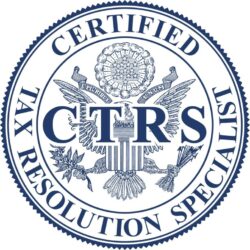IRS Audits
Navigate IRS Audits with Expert Representation
We identify audit triggers, prepare thorough documentation, and craft proactive defense strategies to minimize proposed adjustments and penalties.
Our team collects, organizes, and reviews your financial records to support audit defense and demonstrate compliance.
We review your returns, substantiate deductions, and assemble supporting evidence to address IRS inquiries and reduce audit exposure.
IRSProb
IRS Audits
With extensive audit representation experience, we guide you through every stage of the IRS audit process, advocating for a fair and accurate outcome.
We maintain exceptional standards in audit advocacy, delivering timely responses and clear communication throughout the audit.
We provide personalized attention and transparent updates to keep you informed and in control during your audit.
Leveraging years of audit defense success, we translate complex tax law into practical strategies tailored to your situation.
IRS audits involve different types—correspondence, office, and field audits—selected based on discrepancies, random choice, or third-party information. Each type requires specific documentation and methods of examination.
We assist you by compiling and submitting requested documentation, communicating with IRS examiners, and negotiating proposed adjustments to protect your interests.
Once the audit is closed, we help you understand any adjustments, appeal unfavorable findings, and implement compliance measures to prevent future audits.
Expert audit representation helps minimize additional tax, penalties, and interest, and alleviates stress by handling IRS interactions on your behalf.
IRS Audit FAQ
Common Audit Questions
Important Terms To Know
- Audit: An IRS examination of tax returns and supporting records to verify accuracy and compliance.
- Correspondence Audit: An audit conducted by mail, typically involving specific line items on your return.
- Office Audit: An in-person audit at an IRS office for a detailed review of your records.
- Field Audit: A comprehensive audit conducted at your home, business, or accountant’s office.
- Notice of Audit: A letter from the IRS notifying you of the audit type and documentation required.
- Audit Trail: A detailed record of your financial transactions and supporting documents.
- Examination Report: The IRS summary of proposed changes at the conclusion of an audit.
- Appeal Rights: Your right to protest audit findings through IRS Appeals or Tax Court.
- Representation: Authorization of a tax professional to act on your behalf during an audit.
- Tax Compliance: Ensuring accurate filings and timely responses to IRS audit inquiries.
An IRS audit is an official review or examination of your tax return to verify its accuracy and compliance with tax laws.
Audits are triggered by discrepancies, unusual deductions, high income, random selection, or information reported by third parties.
The audit process may involve correspondence, office visits, or field examinations, with requests for specific documentation and interviews.
The IRS uses statistical models, audit leads, and referrals to select returns for examination.
Yes, you can submit additional documents or explanations to the IRS examiner to support your positions.
After audit completion, you receive an Examination Report. You must pay additional tax, request an appeal, or accept the proposed changes.
No, audit findings are not publicly recorded; they remain confidential between you and the IRS.
Audits can last from a few weeks to over a year depending on complexity, documentation responsiveness, and IRS workload.
Maintain accurate records, file timely returns, substantiate deductions, and promptly respond to IRS notices to reduce audit risk.
CLICK HERE or call (833) IRS-PROB or (214) 214-3000 to speak to a tax associate today. They will outline the specifics of your case and help map out your options moving forward. If you’ve received any certified mail or other threatening correspondence recently, make sure and tell them so they can take the necessary steps to intervene with immediate action. Don’t wait until it’s too late! Relief is just a simple phone call or click away.
IRSProb specializes in audit representation, handling documentation requests, communicating with IRS examiners, and appealing findings to ensure fair treatment.
About IRSProb
What Does IRSProb Do?
We become your official advocate before the IRS—handling all communications, filings, and negotiations so you don’t have to.
Our team of CPAs, enrolled agents, and tax attorneys reviews every detail and crafts a tailored roadmap to relief.
From powers of attorney to financial disclosures, we assemble and vet every form and schedule required by the IRS.
Drawing on decades of experience, we negotiate Offers in Compromise, Installment Agreements, penalty abatements, and more.
After securing a resolution, we guide you through payment setup, monitor compliance, and stand ready to address any follow-up IRS inquiries.

CPA, EA, CTRS, Superhero
Testimonials
Our Clients Reviews
EXCELLENTTrustindex verifies that the original source of the review is Google. I had the pleasure of working with Randy a few years ago and he saved me thousands of dollars with the IRS! I can not recommend him enough!Posted onTrustindex verifies that the original source of the review is Google. Randell Martin was very thorough and gave great advice. I learned a lot about my tax issue in the 30 minute free consultation. Would recommend.Posted onTrustindex verifies that the original source of the review is Google. I have been a client of this firm for 5+ years. Mr. Martin, Mr. Bond and the entire staff exemplify professionalism. The ideas of integrity, promptness, dedication and knowledge are honored here, not just commercial words. This firm has helped me thru some tough times. In the past, I had less successful experience with a well known tax attorney whose staff turnover was an ominous reflection of his overall work ethic, so I pay attention to that. The staff here at IRSProb is stable and courteous. Most reassuring are the results of their work. They will make your life better, presenting you with open and honest assessments of your situation along with viable solutions.Posted onTrustindex verifies that the original source of the review is Google. Randy nos ayudó con las asuntos fiscales en los Estados Unidos. Nos ayudó muchísimo. GraciasPosted onTrustindex verifies that the original source of the review is Google. Randy me ayudo muchísimo con los asuntos del IRS graciasPosted onTrustindex verifies that the original source of the review is Google. “I got a surprise letter from the IRS demanding certain actions within a tight timeframe. Randy and team helped by immediately knowing what needed to be done and how to do it. Thank youPosted onTrustindex verifies that the original source of the review is Google. Terrific service, and wonderfully kind people. Ray Bond was excellent at guiding me through the Offer in Compromise process. I'm so grateful I found them!Posted onTrustindex verifies that the original source of the review is Google. Ray was great and appreciate all he did. We had a professional tax person mess up our taxes and Ray worked to get everything corrected. Its not a fast process but your working with the IRS and it’s on their time.Verified by TrustindexTrustindex verified badge is the Universal Symbol of Trust. Only the greatest companies can get the verified badge who has a review score above 4.5, based on customer reviews over the past 12 months. Read more
Get Informed about Tax Relief
Learn from the our Youtube library
Educational Tax Relief Videos

4:48

1:35

0:08

2:35

0:08

1:02
Why Choose Us
Why Choose IRSProb?
You’ll work directly with one seasoned CPA—no handoffs, no bureaucracy—ensuring every detail of your case gets expert oversight.
When you call or email, you reach your CPA. Expect prompt, jargon-free updates at every stage of your case.
Hundreds of clients served, significant liabilities reduced, and glowing testimonials—your relief is our reputation.
Our Proven Process
1
File Form 2848 (Power of Attorney) and Form 8821 (Authorization) to freeze most collection actions (levies, garnishments), then request your entire IRS record
2
Compile past tax returns, bank statements, pay stubs, business records, and IRS notices into a single Discovery packet.
3
Assess all relief paths—Offers in Compromise, installment plans, CNC status, innocent spouse relief, and penalty abatement—to pinpoint the best solution.
4
Submit required forms and documentation, then advocate directly with your IRS revenue officer to secure optimal terms.
5
Set up payment or compliance plans, track deadlines, and manage follow-up filings to ensure IRS adherence.
Need More Help?
Call us now to speak directly with your dedicated CPA and get immediate help resolving your tax issues.
Contact us below for a complimentary case review and a personalized roadmap to financial freedom.
IRSProb Tax Services
Providing professional guidance so that you can pay off your tax debt for a fraction of the original cost if you qualify.
Guiding you through the process of negotiating a release of the levy through an installment plan with the IRS thats easiest on your wallet
Specializing in filing Installment Agreements and helping taxpayers unable to fulfill their existing IRS payment agreements
Presenting your case to the IRS in order to dissociate you from penalties due to your spouse’s inability to pay their taxes.
Ensuring that your rights are respected by IRS agents, and serving as your authorized representative knowledgeable in tax law.
Assisting you with resolving delinquent employee income tax withholdings, associated penalties and abatement.
















